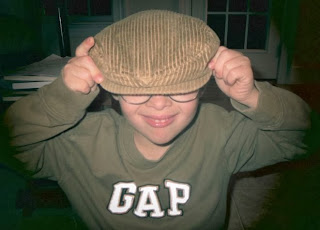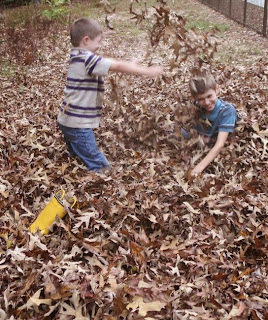What is unconditional love?
I see it demonstrated often among those who have that extra chromosome. I see also the desire for it among many individuals without an extra chromosome as they beg others to be tolerant, non-judgmental, and unprejudiced.
I think of the two commandments: love God and love others. And I wonder what it all really looks like lived out on an imperfect Earth.
Does loving Wade unconditionally mean that I accept his deficits without trying to change him?
Does giving him years of therapy mean that deep down I am really not happy with him the way he is?
Nathan is a young adult with Down syndrome. His parents have decided to have him participate in trials for a drug which could greatly improve cognitive function in individuals with Trisomy 21. They hope this will someday allow him to function more independently.
Many other parents refused to participate in the same research program because of fears that the son or daughter they loved would be fundamentally changed in some way.
Kaitlyn's mother decided to use growth hormone therapy when Kaitlyn was still quite young. She felt that a more typical height would make Kaitlyn act more responsibly because people would realize how old she was and would expect more from her.
Roy Richard Grinker is an anthropologist who has written a book about autism and his experiences with his daughter Isabel.
Sometimes at night, Isabel has a hard time falling asleep. It helps her if I sit in a chair in her bedroom. Looking at her then, from across the room, I see two different Isabels. There is Isabel awake--often hyperactive and isolated--and Isabel asleep, a beautiful child drifting into a calm night. And then I realize something unsettling: I feel more affection for the sleeping Isabel. She looks so peaceful and relaxed. And I wonder what this says about me. Do I love her less when she's a real person, awake and in the world?
--from
Unstrange Minds: Remapping the World of Autism
Robert Rummel-Hudson writes about his experiences with his daughter Schuyler who has a rare neurological disorder. He speaks of the difficulty of maintaining a balance between unconditional love and advocacy.
Schuyler's father has lost the balance between being the kind of dad who lets his daughter make mistakes so that she can learn from them and the kind who is there to keep her from wandering too far from herself. He struggles with the balance between accepting her for the astonishing human being that she is, and fighting to tear down the obstacles that have been unfairly and arbitrarily placed in her path. Her father’s advocacy is balanced very precariously, as it always has been.
-- from "Balances" at
Support for Special Needs
Walker is the son of journalist Ian Brown. Walker was born with a genetic condition so rare that it is documented in perhaps 300 people worldwide.
The Boy in the Moon tells Walker's story with both the detachment of a journalist and the agony of a father. In an interview, Ian Brown said he often hears parents of handicapped children say that they wouldn't change their children or trade them for anything. "But I would," says Brown. "I'd trade Walker...in an instant. I wouldn't trade him for my sake, for our sake, but I would trade him for his sake."
Sometimes watching Walker is like looking at the moon: you see the face of the man in the moon, yet you know there's actually no man there. But if Walker is so insubstantial, why does he feel so important? What is he trying to show me? All I really want to know is what goes on inside his off-shaped head, in his jumped-up heart. But every time I ask, he somehow persuades me to look into my own.
So what is unconditional love? Do these parents love their children any less for wanting to change them? Absolutely not. Their ragged, aching, vibrant and rending love is apparent in every word they write, in every step they advocate.
Do I love myself unconditionally? I think I do. Most of us do. Do I ever wish to change myself? Absolutely!
Do I love my other children? Do I allow them to grow up unchecked and untrained simply because I love them unconditionally? No, because that wouldn't really be love at all.
Couldn't we say that loving someone unconditionally is loving them for who they are while also seeing them for who they can be? So then true love will mean doing my best with the knowledge I have at the moment to give my child the vision and ability to strive to be his best. At the same time, I must also love him exactly as he is during the process.
Is that easy? No, it isn't. But as I spend my days trying to choreograph the delicate dance of love, I often catch faint glimpses of something else--wisps of something torn, but lovely.
These three authors above who express in poignant language their paradoxical love for their broken, beautiful children, also express their lack of belief in God, often citing anger toward him for the way they feel He has made their children suffer.
And yet....
Their devotion for their children is utter and complete to the point of a willingness to trade places with their children if possible.
That is unconditional love.
It is the same love God the Father felt for his broken beautiful children. A love so great that he opened His arms wide and took our place. A love so boundless that He died so we wouldn't have to.
But He knew that life would happen and we would become cynical and hurt and would cry out in anger against Him and refuse to believe Him.
And so he set Eternity in our hearts. And he made dads and moms who love broken children. And he gave us the desire to live in a perfect world and to strive for a more perfect world for the children that we love.
Our unconditional love is the remnant, torn though it may be, of the Paradise we first inhabited.
And it is the beginning of the way back.
If I find in myself desires which nothing in this world can satisfy, the only logical explanation is that I was made for another world.
---C. S. Lewis
He has made everything beautiful in its time. He has also set eternity in the hearts of men.
Ecclesiastes 3:11





















































